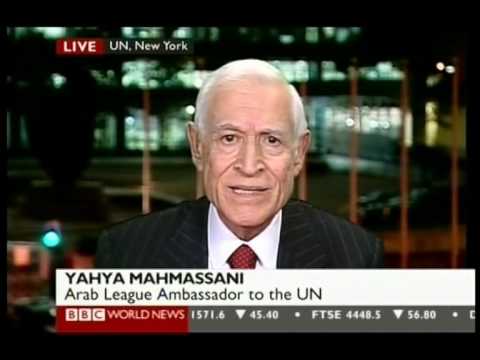This is a guest post by Mitnaged
It is impossible for a journalist not to have biases, but the mark of an ethical journalist is to be sufficiently aware and not to let them enter what he/she reports. If this cannot be avoided then the journalist should state those biases openly so that the reader can make up his/her mind as to the extent they influence what is written.
The Guardian’s journalists, and CiF’s anti-Israel stable in particular, appear not to notice the extent to which their biases influence what they write. Indeed, in many cases it seems that they deliberately allow their biases to influence their work. I have written elsewhere about cognitive dissonance, which I believe is the reason for the persistence of Jew- and Israel-hatred on CiF regardless of the objective and verifiable evidence which refutes all haters’ arguments for holding onto it. However that article merely scratched the surface – there is much much more.
For example, another strand of this rigid and persisting hatred of Israel and its population, and often of Jews generally, might be the over identification by the haters with those who they perceive to be the underdogs, to the extent that the haters adopt the attributions of those underdogs about the causes of their distress.
The perennial belligerent self-pity of successive Palestinian governments has undoubtedly rubbed off on their people, in spite of the fact that Palestinians received in the order of $550 million for 2008 in humanitarian aid from the rest of the world (see also here and here) . Accompanying this, and no doubt carefully stoked by Hamas’ propaganda machine or the fear of Hamas, is the exaggerated sense of entitlement we see exhibited so often by Islamists.
Hamas and Fatah before it, as well as the Palestinian Authority on the West Bank, believe that they are entitled to such aid because they are who they are. There is no indication from them that they recognise that they are at least partly (some would argue mostly) responsible for the parlous state of their economy and could do much to improve it. Worse, they seem to be incapable of realising that their current course of action – terror against Israel – not only is not working, but is making matters much, much worse for their people.
What makes such people persist in a view of the world which actually does them harm? Part of their rigidity may well be because they cannot bear the discomfort of having to deal with cognitive dissonance caused by argument and proof that such a world view is wrong, but a good deal of it arises, I believe, from the fact that such people are stuck at the egocentrism stage of their psychological and emotional development.
Egocentrism which endures beyond early childhood may be defined both a moral limitation and a cognitive one. Morally egocentric people are fixed only on their own thoughts and needs and consistently fail to take into account for the needs and intentions of others in making their decisions about how to act. Different from this is egocentrism as a cognitive limitation: people with cognitive egocentrism have neurologically-based difficulty ”reading” others’ mental states and considering events from another person’s perspective. They also lack empathy.
Toddlers and young preschoolers are egocentric because they are not developed enough and lack the cognitive resources to see the world from alternative perspectives. However, successive Palestinian governments have exhibited both moral and cognitive egocentrism as evidenced in their decision-making and their treatment of their own people as well as the cause and effect attributions they make in public about the mess into which they have got their people.
Richard Landes highlights this handicap of the Arab/Muslim mindset. The second link on his page is to an interview with a UN representative of the Arab League whose reply to a perfectly apposite question about why Hamas does not stop shelling southern Israel, looks at first as if it evidences the reaction to the cognitive dissonance I have referred to elsewhere, but of which he appears not to be aware. I also believe that the UN representative could resort to the excuse he gave because he is stuck in the moral and cognitive egocentrism I refer to above, and which, in an adult, is a handicap.
More recently, cognitive egocentrism has been placed within another paradigm, that of Theory of Mind. A person has a fully developed theory of mind when s/he is able to evidence at least the following:
- That s/he knows that she and other people have minds, ie that they have thoughts, beliefs, feelings, desires, intentions, and the like.
- That s/he is able to understand her/his own thoughts and feelings, and infer other people’s thoughts, beliefs, feelings, desires, and intentions from their behaviour (including what they say) with reasonable accuracy.
- That s/he is disposed to use this information about other people’s thoughts, beliefs, feelings, desires, and intentions in making decisions about how to act in social contexts. In particular, s/he is able to see the world from the perspective of other people.
It may be that Islamists and their fellow travellers are developmentally stuck and lack theory of mind. This is certainly evidenced in the video excerpt above of the interview with the Arab League representative to the UN, where he assumed that his excuse for the continued shelling of southern Israel from Gaza would be accepted unquestioningly, although he is not a jihadi.
The failure to develop a theory of mind comes about from stuckness at the egocentrism phase of development. People can become stuck there because of neurological factors, such as brain injury, or because of gross abuse in their formative years. Here one has to ask about the motivation for and the effects of programming children to accept such abuse, a state of affairs adopted wholesale by Hamas in its kindergartens and schools (see here ).
There is a growing body of evidence, which shows that emotional and other abuse can also affect the physiology of the brain and its capability to lay down the synaptic connections which will result in successful cognitive development, including the capability to move beyond the cognitive egocentrism phase. According to Seigel, 1995 and 1996, the child’s sense of the self in interaction with others will be severely impaired in cases, for example, of familial child abuse. For these reasons, the deepest sense of self awareness, of core consciousness, may be profoundly influenced by early experiences in infancy and childhood. (Author’s note: Given this and other research it is reasonable to suggest that this “deepest sense of self-awareness” – from which develops empathy and a theory of mind – are seriously compromised in those Palestinian children exposed to Hamas “death games” and cartoon videos praising martyrdom in Gaza and the West Bank,).
It is almost a given that the abusers themselves lack any theory of mind or capability for empathy and doubtless for the same reasons, otherwise they could not do what they do. They have an instrumental approach to these children and to anyone else they believe they can use to pursue a course which, to them, is self-evidently the right one. That being the case they have no hesitation in deliberately compromising the mental health and cognitive development of future generations of Palestinians, the better to transmit their legacy of Israel- and Jew-hatred, and, because they are unable to locate the source of the abuse to be within themselves, and they lack the self-control to prevent themselves from acting it out, they will invariably blame Israel/Jews for “forcing” them to do that.




